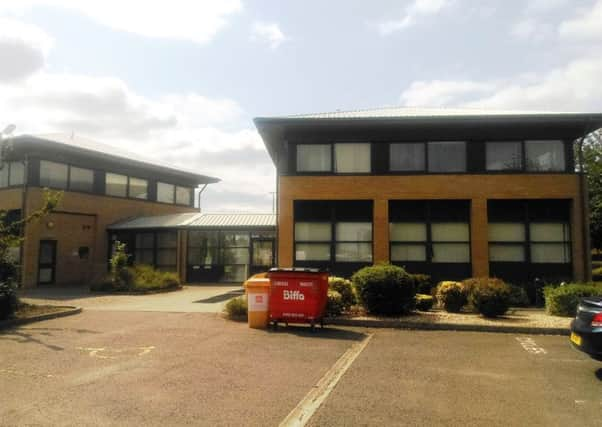Inquest: Minting man died after ‘catastrophic’ bleed at Pilgrim Hospital


Michael Douglas Hill, 71, had the procedure to remove a potentially cancerous 3cm polyp removed from his bowel wall carried out at Pilgrim Hospital, Boston, on November 28, 2017.
An inquest into his death held at Boston Coroner’s Court on Wednesday (January 16) heard that a vein was damaged during the operation and the wound had to be stitched twice.
Advertisement
Hide AdAdvertisement
Hide AdMr Hill, a retired merchant seaman who worked as a volunteer ambulance driver for EMAS until the day before his operation, lost 3.6 litres of blood during the procedure which, at one point, had five surgeons involved and took almost twice as long as the normal three hours.
Experienced colorectal surgeon Munir Ahmad Rathore told the hearing that although complications can occur during any operation, losing a patient after this particular right-side colon procedure is rare. He could not recall another one under his surgery.
Mr Rathore described how the laparoscopic (keyhole) surgery was made extra difficult when he came across the presence of adhesions (scar tissue from previous surgery) close to the superior mesenteric vein.
He said: “About 15 or 20 minutes into the procedure, due to a fatty deposit, there was a little tunnel view. That looked like an adhesion.
Advertisement
Hide AdAdvertisement
Hide Ad“There was an Harmonic Ace - a ceiling device, which is very helpful and very gentle. This one I used with gentle traction to go further.
“At some point that vein had a puncture or more than a puncture because it bled and the bleeding looked like acknowledgeable.”
A vascular surgeon stitched the wound but a short while later it bled again and a second vascular surgeon restitched it, this time with the benefits of using telescopic glasses and there being more abdomen to work within.
Mr Rathore said of the 3.6 litre blood loss: “It looks bad but far bigger volumes are dealt with by vascular surgeons all the time.”
Advertisement
Hide AdAdvertisement
Hide AdHe said he apologised to Mr Hill’s family for the “unanticipated chain of events”.
“It has never happened to me,” he told the inquest. “The chances are very low, but it happened.”
The cause of death was multi-organ failure and haemorrhaging.
Mr Hill’s niece, Denise Munnelly, told the hearing that the family was unhappy with feedback after the operation.
Advertisement
Hide AdAdvertisement
Hide AdShe said: “We were led to believe everything had gone according to plan and he was in ICU (intensive care unit) as a precaution.
“(We) got a phone call the next morning to say we better get to the hospital because he wasn’t very good.
“That’s why we felt let down.”
The hearing was told that, following an incident review report by the Pilgrim Hospital, steps from an action plan have been implemented and surgeons have been reminded of the ‘pitfalls’ of laparoscopic surgery with adhesions present.
Mr Rathore admitted that his pre-operation discussion with Mr Hill, including everything that would happen and possible consequences, had not been recorded in writing, although it should have been. He confirmed he would do so with future patients.
Advertisement
Hide AdAdvertisement
Hide AdLincolnshire assistant coroner Paul Cooper said a short version conclusion was not appropriate in this case, concluding that Mr Hill died “following an operation during which the superior mesentric vein was either punctured or suffered traction that was identified as one of the primary causes of death at post mortem”.